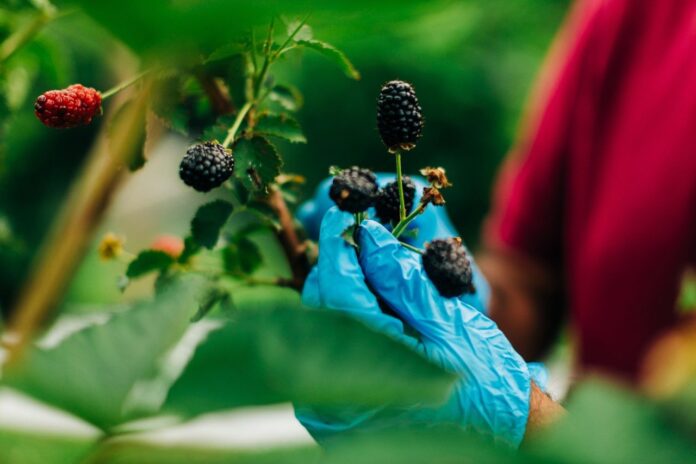Summertime is synonymous with fresh berries, and there may be no better place to be on a sunny day – besides the beach – than a berry-picking patch.
Berry production is a $6 billion industry in the United States, and Virginia has been become a key contributor with a suitable climate and soil types for growing blueberries and blackberries, in particular.
As part of the U.S. Department of Agriculture’s Specialty Crop Block Grant Program, researchers in the College of Agriculture and Life Sciences are testing best practices for growing blackberries and new methods to utilize ones that are quality-compromised.
Experts in the Virginia Tech Flavor Lab in the Department of Food Science and Technology are partnering with those in the Small Fruit Research and Extension Program at the Hampton Roads Agricultural Research and Extension Center to develop a new trellis system for blackberry production and produce beverage recipes for blackberries that may be “past their prime.”
“Virginia blackberry growers struggle with the handling and utilization of quality-compromised blackberry fruits,” said Yun Yin, a flavor chemist and assistant professor in the Department of Food Science and Technology. “Blackberry beverage products, such as kombucha, will be a good revenue source for growers.
However, traditional methods of making kombucha, a fermented tea, require expensive equipment and a lot of time and effort, Yin said. To make the process easier, the research team will develop easy beverage recipes as value-added products to sell at different market venues. The approach is expected to increase farmers’ revenue from appropriately growing and utilizing blackberries.
Jayesh Samtani, a small fruit production specialist at the Hampton Roads Agricultural Research and Extension Center, will oversee the growing methods.
The project, formally titled “A New Way of Growing and Utilizing Blackberry: from Farms to Bottles,” will do the following:
- Develop a new trellis system for blackberry production suitable for small farms and evaluate the fruit yield, quality, and chemical composition.
- Build straightforward training fliers for this new growing method and distribute to regional producers through Virginia Cooperative Extension efforts.
- Develop blackberry-based beverages from quality-compromised fruits using easy recipes.
The project is expected to be completed by September 2024.

